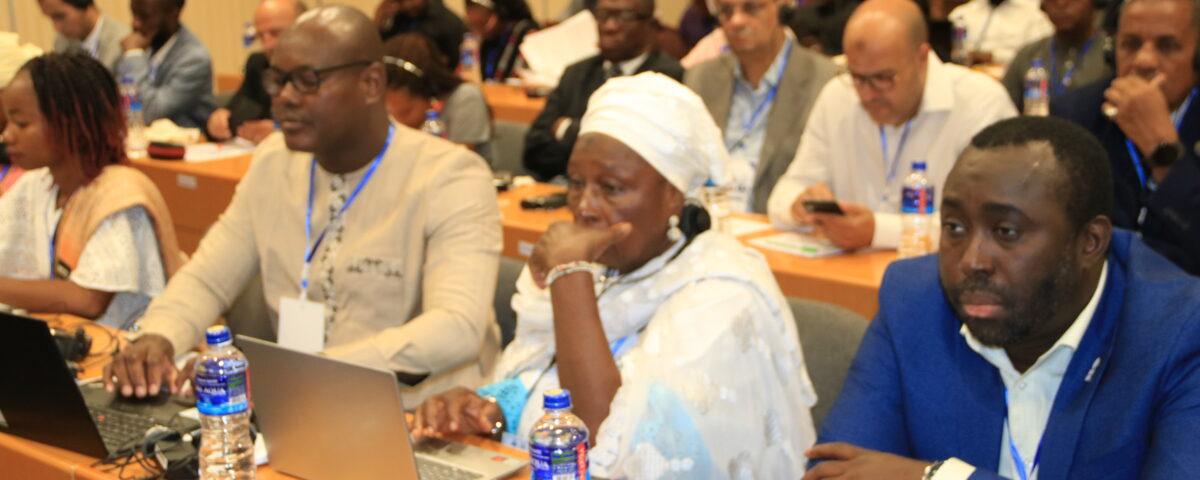Introduction
A panel discussion was held at the recently concluded NGOs Forum, which preceded the 81st ordinary session of the African Commission on Human and Peoples’ Rights (ACHPR). This forum served as a pivotal platform for Non-Governmental Organizations (NGOs) to address pressing human rights issues across Africa, particularly focusing on the challenges surrounding sexual and reproductive health rights and Gender-Based Violence (GBV). Moderated by Moussa Bienvenu Haba, Legal Advisor at Lawyers Without Borders Canada, the discussion highlighted the significant barriers that women face in these areas.
Key Contributions
Alpha Coulibaly, Head of Planning and Monitoring at the Centre for Assistance and Promotion of Human Rights (CapDH) in Mali, emphasized the need for education among women who often lack awareness of the legal protections available to them. He noted that CapDH employs various sensitization strategies, including local language programs via TV and radio, community outreach, and digital campaigns to reach hard-to-access populations. Coulibaly acknowledged cultural taboos surrounding discussions of sexual health as a major obstacle but stressed the importance of engaging local communities to advocate for laws that protect against sexual and gender-based violence. He recommended enhanced efforts to sensitize communities about these issues and urged engagement with policymakers to improve legislation.
Bezahinibé Micheline Somda, a Volunteer Legal Advisor at Lawyers Without Borders Canada (Mali), shared insights on their legal support initiatives. She reported that their mobile legal services have reached 312 individuals, including over 50 men. Following sensitization efforts, 15 victims of gender-based violence sought assistance. Somda highlighted the importance of maintaining confidentiality for victims and noted that they have successfully assisted 108 individuals affected by GBV. One notable case resulted in a conviction for a violator who received a 12-month prison sentence and a fine, although Somda expressed that this was insufficient for the victim’s needs.
Bintou Coulibaly, National President of the Association for the Progress and Defense of Women’s Rights (APDF), discussed their work with women facing forced marriages and early pregnancies. Despite Mali’s commitment to the MAPUTO Protocol, she lamented ongoing practices such as child marriage at age 15. Coulibaly pointed out that inheritance laws based on Sharia Islamic principles disadvantage women significantly. She advocated for greater involvement of religious leaders in promoting women’s rights and emphasized the need for community engagement to demystify misconceptions about legal processes.
Mme Monique Dah, Executive Director of the Centre for Information and Training on Human Rights in Africa (CIFDHA), outlined her organization’s advocacy efforts since its inception in 2009. CIFDHA has focused on sexual and reproductive rights, participating in Burkina Faso’s Fourth Universal Periodic Review to address issues such as limited access to healthcare for women and girls and the prevalence of female genital mutilation. Their advocacy led to recommendations urging the state to prioritize these issues.
Participant Interventions
During the forum, participants raised critical questions about collaboration with religious councils in Mali, strategies for involving men in advocacy efforts, and navigating state relations in Cameroon concerning LGBTQ+ rights. Imam Baba Leigh from The Gambia highlighted corruption as a significant barrier to progress, calling for better retirement benefits for public servants to ensure accountability.
A Tunisian activist brought attention to the mistreatment of women migrants in Tunisia, emphasizing their lack of access to healthcare and the criminalization of human rights defenders. This situation underscores the urgent need for systemic changes within national frameworks.
The discussions underscored a collective call for enhanced education on sexual and reproductive rights, increased engagement with men as allies in advocacy, and stronger legal frameworks to combat gender-based violence across Africa. The commitment from various organizations highlights a growing recognition of the need for comprehensive strategies that address cultural sensitivities while promoting human rights education.


